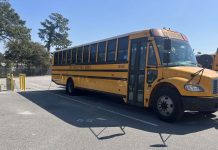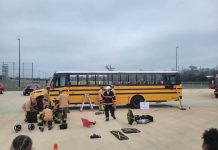Much has been made industry-wide, over the past year especially, on linking school bus ridership to academic achievement in the classroom.
The feds are certainly focused on improving math, reading and science test scores as well as graduation rates. And as Education Week reported today, education leaders are starting to look beyond simply academics and towards social and cognitive skills. How can school buses help in this regard?
Leaders in student transportation have pointed to the regular school bus service and the convenience that it provides to students and parents alike as a key cog in the wheel of learning. After all, if students are unable to get to school or face arduous journeys to and from, at the least school children of all ages are not getting their day off to a healthy, focused start. At worst, the lack of reliable and safe rides to and from school may keep them home, altogether.
And we all know what that means: test scores and graduation rates will continue to plummet. It’s a vicious circle, as Robert Reich, chancellor’s professor of public policy at the University of California at Berkley, so aptly points out.
The American School Bus Council succeeded earlier this year in chewing the ears of U.S. Education Department and NHTSA staffers so much so that this coming August NHTSA is expected to begin a two-year, $5 million public awareness campaign that touts the benefits of school buses. And the DOE is focused on including school transportation in the discussion on bullying intervention.
In addition to reducing congestion, helping parents save on fuel costs and the “safest on the road” title held by school buses, this conversation must also center on providing service to those who need all the help they can get in getting to and from school, namely students with disabilities, school choice students, rural children, lower-income children, and the homeless.
And, if properly run as an extension of the classroom, school buses could potentially help students hone their social skills. But that rests on the ability of transportation professionals to clearly define their roles and responsibilities with school system administrators regarding not only transportation service but the policies and procedures necessary for addressing student behavior management and safety as well as leveraging the educational activities on board school buses.















